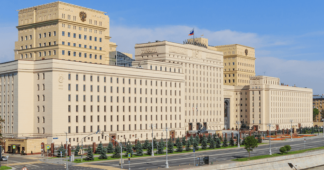The current NATO multinational battle group deployed in the Lithuanian town of Rukla has around 1,600 personnel, approximately half of whom are German.
Jun 26, 2023
On Monday, German Defense Minister Boris Pistorius announced that his country will permanently station 4,000 troops in Lithuania to protect the eastern flank of the The North Atlantic Treaty Organization (NATO).
“Germany is ready to permanently station a robust brigade in Lithuania. The prerequisite we have discussed is that the infrastructure must exist: barracks, training grounds, and warehouses,” he said during a visit to the Lithuanian capital of Vilnius.
“We are talking about a brigade of 4,000 soldiers plus equipment, and in the case of permanent deployment, their families as well,” added Pistorius, who said that the plan discussed with the Lithuanian Defense Minister Arvydas Anusauskas involves increasing the forces in parallel with infrastructure growth.
Following the 2022 NATO summit in Madrid, German Chancellor Olaf Scholz committed to sending a German brigade for enhanced surveillance activities (EVA).
?? “Stop Ramstein” anti-war rally starts in Germany to prevent the continued insane policies leading to a new world war. The US Ramstein base plays a central role in NATO’s aggressive activities in Europe, from which the management of AFU operations in Ukraine is carried out. pic.twitter.com/PcOk5zwkK7
— ?pocalypsis ?pocalypseos ?? ?? ? (@apocalypseos) June 25, 2023
This brigade’s goal is to complement the Enhanced Forward Presence (EFP) multinational battle group, under German command, which has been deployed in the Baltic country since 2017.
However, until now, there was no agreement regarding whether the promised EVA brigade would be deployed on a rotational basis or permanently.
Pistorius emphasized that until 1990, Germany was located on NATO’s eastern flank and relied on its allies for security, and in the same way, Berlin must now assume its responsibility in defending Poland and the Baltic countries.
“In the end, we are talking about shared freedom,” he concluded, adding that “freedom is not for free.”
The current NATO multinational battle group deployed in the Lithuanian town of Rukla has around 1,600 personnel, approximately half of whom are German.
We remind our readers that publication of articles on our site does not mean that we agree with what is written. Our policy is to publish anything which we consider of interest, so as to assist our readers in forming their opinions. Sometimes we even publish articles with which we totally disagree, since we believe it is important for our readers to be informed on as wide a spectrum of views as possible.











